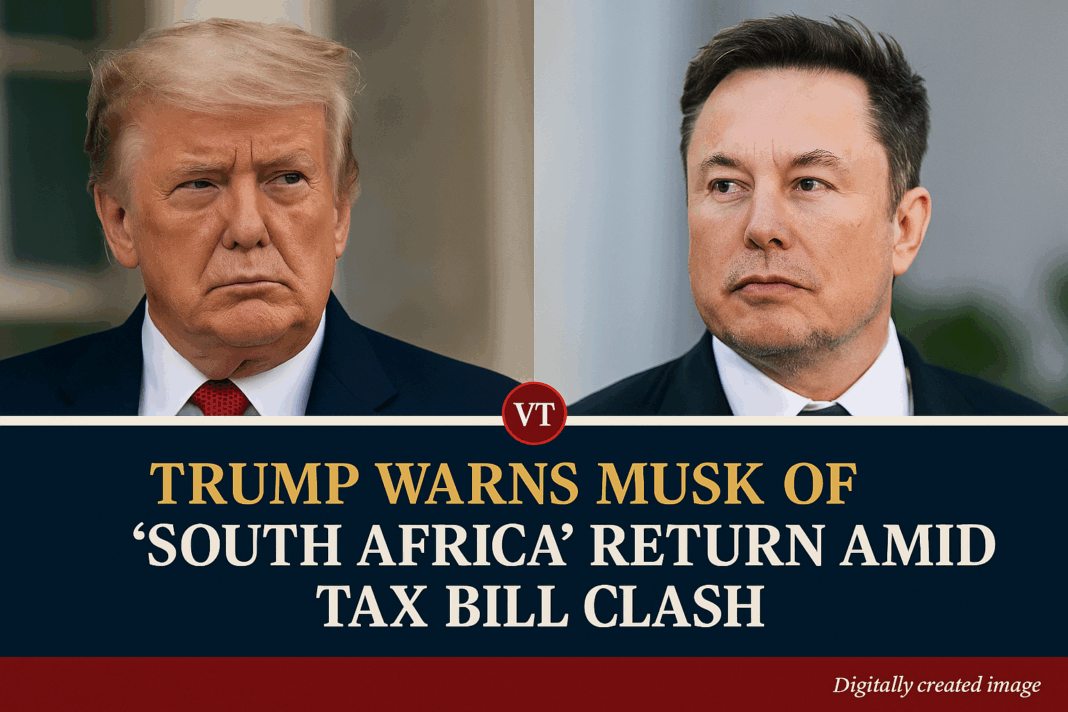President Donald Trump reignited political tensions with Tesla and SpaceX CEO Elon Musk on Monday, sharply criticizing his former ally over electric vehicle (EV) policies and federal subsidies. Trump’s remarks came in a scathing post on Truth Social , where he suggested that Musk’s entire business empire would collapse without taxpayer funding — and floated a probe by a government efficiency task force Musk himself co-leads.
Why it matters
The confrontation spotlights a deepening divide within pro-business Republican ranks over the future of clean energy, government subsidies, and Trump’s sweeping “One Big Beautiful Bill” (OBBB). Musk, who endorsed Trump during the 2024 campaign, now finds himself the target of Trump’s economic messaging just as Congress debates subsidy reforms and environmental rollbacks.
Driving the news
Trump’s post was triggered by reports of Musk criticizing federal mandates on EVs — a long-standing target of Trump’s energy agenda. In his post, Trump emphasized that his opposition to EV mandates has always been a pillar of his campaign:
— Truth Social
Catch up quick
- Trump has opposed EV mandates for years, framing them as coercive and economically damaging.
- Musk has supported green energy incentives but also criticized overregulation.
- The clash comes as Trump’s OBBB bill seeks to dismantle several environmental and subsidy programs.
Subsidy showdown
Trump went further in his post, accusing Musk of being the single largest beneficiary of taxpayer subsidies in U.S. history. The implication was clear: Musk’s businesses — including Tesla, SpaceX, and Starlink — could collapse without continued federal funding.
Estimates show Tesla alone has received over $7 billion in U.S. tax incentives and credits since 2008, while SpaceX has secured numerous NASA and Pentagon contracts for rocket launches and communications infrastructure.
Enter DOGE: A twist of irony
In a striking twist, Trump invoked the Department of Government Efficiency (DOGE) — a recently announced advisory panel on government waste co-led by Musk and Vivek Ramaswamy. Trump floated the idea that DOGE should examine Musk’s own subsidies.
The suggestion has raised eyebrows in Washington and Silicon Valley, as DOGE has no investigative authority and is intended to function as a voluntary advisory task force. Musk has not responded publicly, but analysts say the jab could further strain ties between the tech titan and the Trump White House.
The big picture
Trump’s OBBB legislation — already under fire for including Medicaid cuts and border funding spikes — also seeks to unwind environmental mandates like the EV quota rule. That puts Musk’s core businesses at odds with Trump’s broader economic agenda, even as both men advocate for deregulation in other sectors.
What they’re saying
- Donald Trump: “[Without subsidies], Elon would probably have to close up shop and head back home to South Africa.”
- Elon Musk: No formal reply yet, though Musk has previously argued that federal subsidies were critical in scaling clean energy infrastructure, and he supports phasing them out over time.
What to watch
With the Senate now debating key parts of the OBBB, Trump’s broadside could divide Republican lawmakers. Pro-business conservatives who admire Musk may balk at language targeting innovation sectors, even as they support deregulation and spending cuts.
Bottom line
The Trump-Musk clash reveals growing contradictions between a deregulatory economic vision and the practical dependencies of high-tech entrepreneurship. As the administration pushes for efficiency, it may find itself in conflict with the very innovators it seeks to empower.
A global media for the latest news, entertainment, music fashion, and more.














